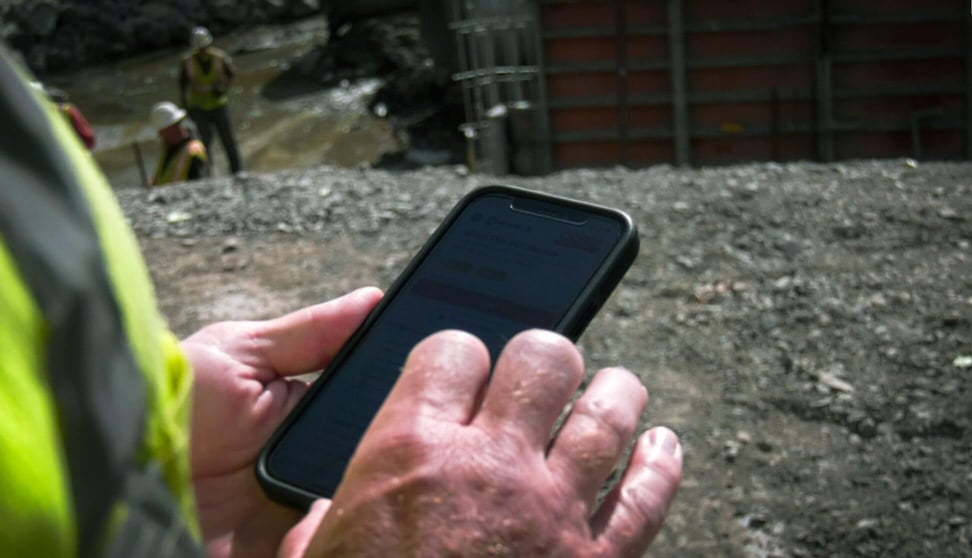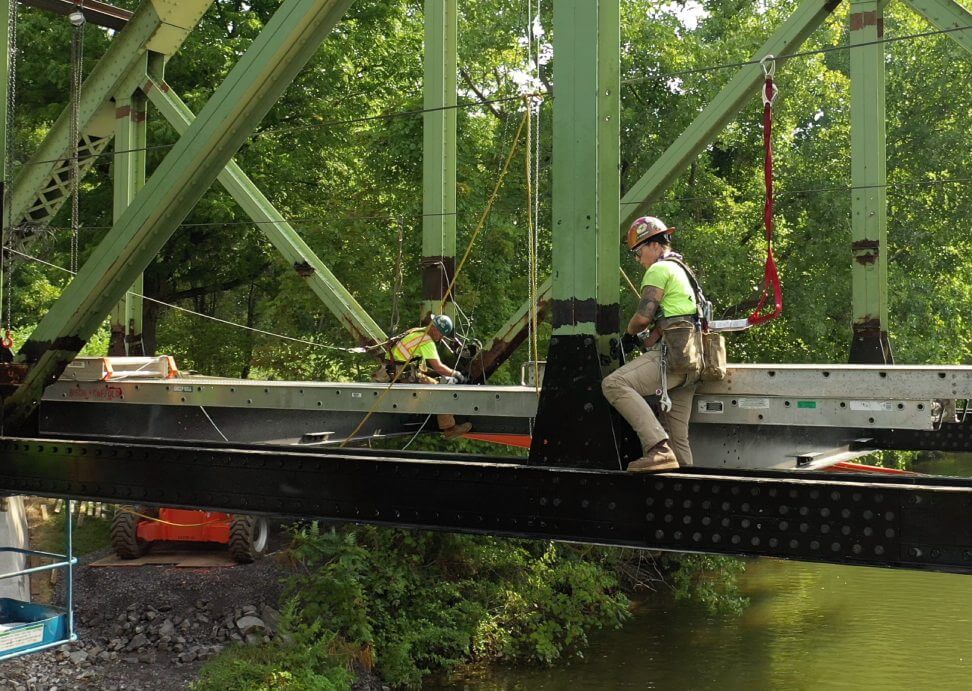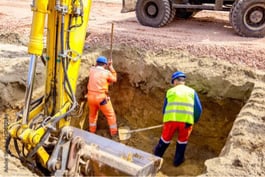Construction companies around the world struggle with a labor shortage, particularly a shortage of skilled workers and young professionals. The construction workforce blames low pay, poor benefits, seasonality, and a lack of opportunities for growth as some of the main reasons they are turning away from the industry. Not to mention, the construction industry is often perceived as male-dominated and old-fashioned, making it even harder to attract young professionals seeking more diversity and inclusion.
Are these perceptions and challenges warranted, or is there hope for attracting and retaining the next generation of construction workers? With more and more construction jobs and projects underway and more industry veteran workers retiring, now is the time to explore new and innovative solutions to the labor shortage problem and find a way to keep the construction industry vibrant and thriving.
In this post, we will explore ten tips for attracting and retaining millennials and Gen Zers within the construction industry, including ways that construction companies can be more mindful of their branding, company culture, recruitment efforts, and use of technology.
The Construction Labor Shortage
For many years, the construction industry has struggled to attract and retain skilled workers. This is primarily due to a shortage of skilled workers and the perception that construction jobs requires manual labor for low pay.
In recent years, however, we have seen an uptick in demand for construction professionals as more companies invest in new buildings and infrastructure projects. As a result, there are simply not enough people available to meet this rising demand. In fact, the US Department of Labor estimated that in October 2021, there were still 402,000 unfilled construction positions nationwide.
This shortage is having a significant impact on the construction industry, as companies find themselves struggling to meet deadlines or complete projects within budget. It also means that skilled workers are in high demand, and those professionals who can secure a job in the industry may be tempted by higher wages and better benefits offered by other companies.
So how do we solve this problem? One important factor is understanding the attitudes and needs of the next generation of workers - Millennials and Gen Zers - who are quickly becoming the largest demographic in the workforce.
Getting To Know Millennials and Gen Zers
The Millennial generation, or Gen Y, is roughly composed of those born between 1981 and 1996. They are digital natives who grew up with the internet and technology at their fingertips and are used to constant stimulation and fast-paced living. They also value work-life balance, diversity, and flexibility in the workplace, and many of them seek to make a social impact through their work.
The youngest members of Gen Z are even more tech-savvy than millennials, with 91% owning smartphones and 80% having created profiles on social media by the age of 16. They also tend to be highly entrepreneurial, open-minded, and quick to adapt to new technologies.
As a result of these attitudes and characteristics, both millennials and Gen Zers tend to be attracted to fast-paced work environments that offer opportunities for professional growth, flexibility, and the chance to make a social impact.
Some key statistics and facts about the Millennial and Gen Z workforce:
- They are comfortable using technology. In fact, 91 percent of Gen Z employees report that they would be more attracted to organizations using sophisticated technology.
- They are the job-hopping generation. Up to 36 percent of millennials and 53 percent of Gen Z employees don't plan to stay in their current positions for more than two years.
- Millennials and Gen Zers chase purpose, not paychecks. In a recent survey, 63% of workers under 35 said the primary purpose of businesses should be "improving society" instead of "generating profit."
- They expect employers to care about their well-being. 2020 brought employee well-being into the foreground, focusing on work-life balance, mental health, and flexibility, and millennials and Gen Zers are leading the push for these initiatives in the workplace.
- Diversity, equity, and inclusion (DEI) are increasingly important to the next generation of workers, who perceive it as a core part of their company's culture, and are the drivers behind organizations' commitment to DEI.
To attract and retain the next generation of workers, companies must take steps to adapt their workplaces and recruiting practices to meet the needs and values of millennials and Gen Zers.
Now that we have a better understanding of these younger generations' attitudes, needs, and preferences, let's explore some specific strategies for attracting and retaining the next generation of construction workers.
-
Be Mindful of your Company Branding and Market Reputation
For the next generation of workers, a company's brand and reputation can be just as important as its salary or benefits. While your company can have a fantastic reputation amongst your clients and customers, it doesn't mean anything if potential millennial and Gen Z workers don't have the same perception.
Young workers may judge your company based on its market reputation and branding, and if they feel like you're not keeping up with modern trends or providing them the opportunity to make an impact, they may be less inclined to work for you. They may feel like you won't be around for long or that you're not progressive enough to keep up with the changing times. And as much as they value their freedom, they also want the security of knowing that their employer is stable and reliable.
To overcome this barrier and appeal to millennial and Gen Z workers, companies must take a proactive approach to build a positive market reputation and brand. This may involve volunteer projects, community partnerships, social media presence, or other marketing initiatives highlighting your company's values and commitment to progress. -
Create an Inclusive, Engaging Company Culture
While work-life balance, flexible hours, and the ability to make an impact are all important to the next generation of construction workers, what's even more important is feeling like they belong in your company's culture. Millennials and Gen Zers are drawn to companies that have transparent, inclusive cultures where employees feel valued and respected.
One way to create this type of workplace is by investing in opportunities for professional development. For example, you could offer classes or training workshops on topics like leadership and management, communication, digital technologies, or DEI. You could also provide opportunities for employees to interact and collaborate through informal meet-ups, lunch events, or social activities.
Allowing your young workers to develop their own ideas and solutions can also help foster a sense of belonging, ownership, and engagement in your company culture. Encouraging them to participate in team meetings, decision-making processes, and brainstorming sessions will help them feel valued and invested in their work. -
Perform Frequent Reviews and Ask for Feedback
Millennials and Gen Zers are known for packing their bags when they feel they've learned and completed everything they can at their jobs. These generations have been brought up to constantly seek new opportunities, and if your company doesn't feel like a good match for their growth and development, they may start looking elsewhere.To prevent this from happening, it's important to perform frequent reviews and ask for feedback. Annual reviews won't cut it for this generation, and you'll need to regularly assess their performance, goals, and growth plans. In construction, this could mean checking in with them once a certain project is finished, allowing them to grow from project to project and making them feel more invested in their work.
Additionally, asking for feedback regularly will help you stay connected with your young workers and get to know what they care about. You can do this through informal check-ins, team or employee surveys, or simply asking them directly what they think about a new initiative or idea. This can help you improve your company culture and demonstrate that you're invested in their success.
-
Offer Mentorship, Growth, and Development Opportunities
Today's young workers seek companies that can offer them career growth and development opportunities. They need to know that their job is important to the company's success and that they're not just a number - they want to contribute to its growth and development.
To appeal to these workers, you'll need to offer mentorship, growth, and development opportunities within your company. This could mean hiring or promoting individuals with knowledge and expertise in a certain area, pairing young workers with more experienced employees, or offering classes or training workshops to improve their skills and help them advance in their careers.
Additionally, you can offer opportunities for career development, such as paid sabbaticals or additional certifications. This will give your young employees a chance to build on their skills and experience while also allowing them to explore other areas of interest within the industry, such as project management or business development.
-
Review your Compensation and Benefits Packages
Let's face it, regardless of the line of work, money is always a huge motivating factor for young workers. They're not looking to work for free, and if your company's compensation or benefits packages don't meet their expectations, they'll be quick to leave. Young workers simply aren't loyal to companies that don't invest in them and support them, and if you want to retain them, you'll need to provide attractive compensation packages.
At a minimum, to attract young construction crew, your company should be offering competitive base salaries and benefits packages. This may include things like health insurance, paid time off, and retirement plans. Disability and life insurance and other perks, such as gym memberships, health and wellness programs, or free lunches, may be another way to set your company apart and appeal to younger workers.
Another thing you should consider is offering bonuses, incentives, and commissions to reward good performance or encourage more productive work. If that's not feasible for your company, you may need to look at alternative ways of showing appreciation for hard work, such as sending out regular performance updates or offering praise and recognition in front of the team.
-
Invest in Employee Training and Professional Development Programs
To compete for top talent in the construction industry, you'll need to invest in employee training and professional development programs. This will not only help your young workers stay up-to-date on the latest industry trends and best practices, but it will also help them feel more supported and invested in your company. After all, the construction industry requires workers to have a significant level of skill and knowledge. If you want to hire and retain young construction workers, you must ensure they're equipped with the skills and experience necessary to succeed.
Here are a few examples of training and professional development opportunities:
Employee training can focus on a wide range of topics, from basic workplace skills and health and safety regulations to more specialized areas like project management or leadership development. Proper training will also help you avoid rework, wasted time, and productivity losses, which can significantly impact your bottom line.
Hands-on training and mentoring programs are another great way to help young construction workers build their skills and advance in their careers. These might include one-on-one sessions with senior team members or interaction with new equipment or technology.
Virtual training, such as using CAHill's aQuiRe™ platform, can also be a great way to develop construction workers' skills and stay up-to-date on the latest industry trends. Virtual training gives you immediate access to thousands of online courses, videos, and tutorials, allowing your young workers to learn new skills or refresh existing knowledge at their own pace.
-
Invest in Construction Tech and Put it to Good Use
Millennials and Gen Zers are tech-savvy and expect construction companies to be as up-to-date and innovative when it comes to technology, just as they are in other industries. The construction industry is often slow-paced when it comes to adopting new technologies, but if they want to attract and retain the best young talent, they need to start investing in technology that will help them stay competitive.
Some examples of technology that can help you improve your construction processes and be more appealing to young workers include:
- Building information modeling (BIM) software allows you to visualize and manage your projects electronically. Using BIM software can help streamline project planning, reduce materials waste, and improve overall construction efficiency.
- Advanced surveying equipment, such as laser scanners, drones, or thermal cameras, can help you gather data and improve accuracy on large-scale construction projects.
- Automated scheduling software can help you better manage project timelines, resources, and budgets.
Training platform and compliance software like aQuiRe™, which helps you keep your workers up-to-date on the latest industry trends and best practices and ensure that your construction team is compliant with safety regulations.
-
Expand Your Recruitment Efforts Outside of Traditional Measures
Do your employees know you're searching for people? Have you reached out to your network? Most construction companies rely only on traditional recruitment methods, such as job boards or recruiting agencies. But the reality is that only a fraction of available talent will appear on these lists - and they may not be the best candidates for your company.
To attract and retain young workers, you need to take a more proactive approach and think outside the box when it comes to recruitment. Some ideas to expand your reach and find qualified candidates include:
- Building relationships with local universities and colleges, offering internships, co-op programs, or job fairs. These events will help you find young talent and give your organization a chance to make a good impression on potential employees.
- Using social media platforms like LinkedIn, Twitter, Facebook, or Instagram to engage with potential candidates and share information about your company culture and opportunities. You can also join groups or communities on these platforms dedicated to young construction industry workers and participate in discussions there.
- Partner with organizations and associations that help young talent succeed in the industry, such as CareerBuilder, Skilled Professional Services Council (SPSC), or the National Construction Association. These organizations can connect you with potential candidates and help you better understand the needs of your younger workforce.
Hosting recruitment events or offering internship programs will help you connect with young workers and give them a chance to see what working in construction is like. When you meet young talent in person and make a good impression, you will have the edge over other companies competing for their attention.
-
Embrace the Gig Economy and Offer Flexible Work Options
Today's younger workers are increasingly looking for work that allows them to balance their personal life and professional development. They want more flexibility in where, when, and how they work, and many of them prefer to work a part-time schedule or take on short-term contracts rather than full-time employment.
As a construction company, embracing the gig economy and offering flexible work options can help you attract and retain younger workers. Some ideas to consider include the following:
Offering compressed work schedules allows employees to spread their hours over fewer days each week. This can be especially helpful if your company is located in a place with harsh winters or hot summers, as it allows people to spend more time outdoors during the nicer seasons.
Offering flexible vacation policies that allow workers to take time off as needed rather than a set number of days per year. This gives employees more freedom over their schedule and can also help attract talent who are trying to balance work with other responsibilities such as childcare or eldercare.
Offering short contracts to part-time workers, so that younger talent can try out different roles and projects within your company without committing to a full-time position. If they're interested in this, they will be more likely to keep working with you in the future. -
Differentiate Yourself from the Competition and Never Stop Recruiting
You must stand out in the highly competitive construction industry to attract and retain younger workers. This means doing everything you can to make yourself an attractive employer - whether through better benefits and perks, more flexible work options, or simply being a company that people want to be a part of.
Whatever strategy you choose, the key is to always be recruiting. If you're not actively reaching out to potential employees and keeping your name in front of them, you'll lose out to more proactive companies. Keep an eye out for potential candidates at networking events, industry conferences, and other professional gatherings, and make sure that your organization is well-represented on job boards and social media platforms.
Above all else, focus on building relationships with young talent - whether they're prospective employees or existing members of your team. By developing genuine connections and creating a positive work environment, you'll encourage young workers to stay with your company long-term and help your organization grow for many years to come.

Conclusion
Attracting and retaining construction workers has never been easy. But by focusing on the needs and preferences of younger workers, investing in your company's culture and workplace environment, and actively reaching out to potential employees, you can build a strong team of young talent that will help your organization thrive for years to come.
At CAHill TECH, we understand the importance of attracting and retaining young talent in construction. Our flagship product, the aQuiRe™ platform, consists of a growing library of over 300 training modules, quizzes and certifications, short videos from real job sites, machine inspection surveys, and equipment checklists, suitable for training and onboarding new employees or refreshing the skills of current ones. With its intuitive design and easy-to-use interface, aQuiRe™ is the perfect solution for today's fast-paced and mobile workforce, yet simple enough for anyone to navigate and use.
To learn more about aQuiRe™, visit CAHill TECH or book a free demo here.


.jpg?width=82&name=CaHill%20Headshots%202022%20final_0008_Lori%20Farrel%20(1).jpg)


